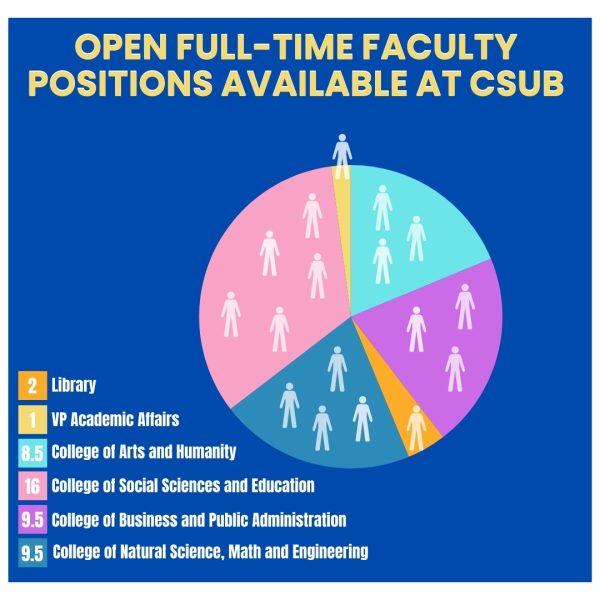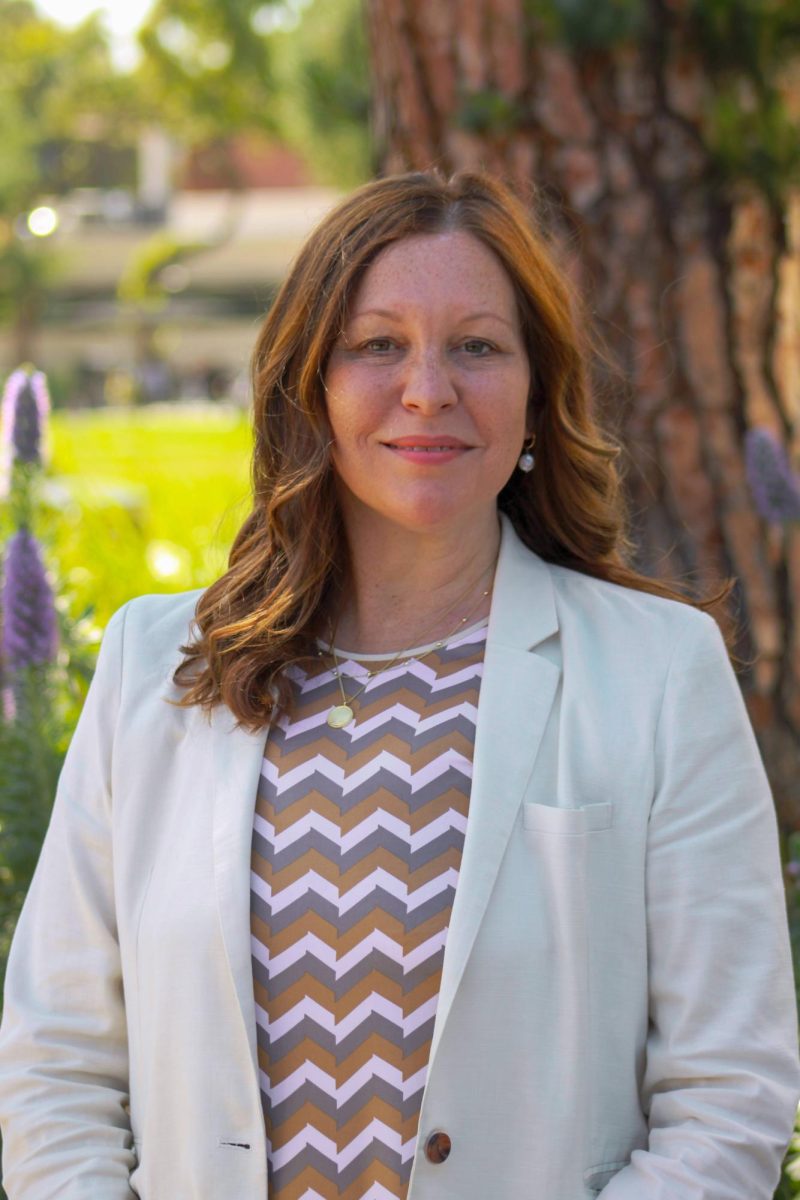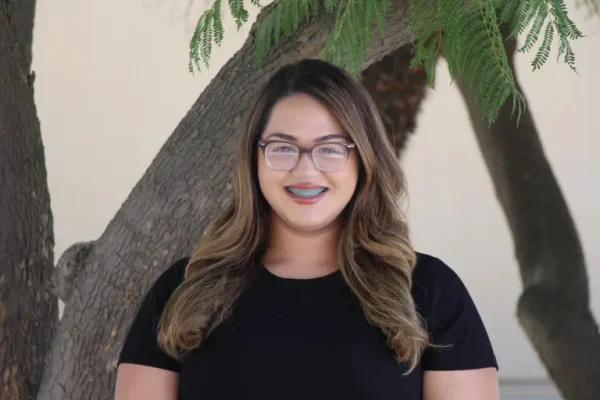
Cal State Bakersfield is facing a $12 million budget deficit for the 2024-25 fiscal year, raising questions about faculty vacancies, student services, and the long-term health of the university. CSUB’s issues are a microcosm of the California State University system’s troubles: Its deficit is $218 million.
One way that CSUB is combating this budget crisis is by leaving vacant 42 faculty positions, jobs that previous faculty voluntarily left or retired from.
42 open seats: What “colleges” are most affected
On Nov. 6, Provost James Rodriquez hosted an Academic Affairs Town Hall that dove into areas on campus with vacancies for full time equivalent positions.
Rodriquez shared the departments and number of the total vacant positions: College of Arts and Humanity, 8.5. College of Business and Public Administration, 9.5. Library, 2. College of Natural Science, Math and Engineering, 9.5. College of Social Sciences and Education, 16. VP Academic Affairs, 1.
CSUB previously shared a bit of this information on Oct. 12 at the Fall Budget open forum, hosted by Thom Davis, vice president and chief financial officer, Dr. Di Wu, chair of the academic senate budget and planning committee, and Vernon B. Harper, president of CSUB.
Harper said one way CSUB has met previous deficits has been by not filling empty faculty positions that occur when faculty members resign or retire. Despite Harper’s reassurances, many audience members expressed worry over the crisis becoming worse as future staff retirements would open up more positions and the remaining staff would have to continue taking on heavier workloads.
Audience members, mainly professors and campus staff, said a lack of transparency had created doubts with the leadership regarding the budget crisis. They spoke up about the lack of communication toward staff regarding the way CSUB is dealing with the budget deficit and whether or not there were clear plans in place to help CSUB overcome the problems arising from a lack of funding.
Harper and Davis explained how the governor’s budget decision in January will determine whether or not CSUB receives the requested funding for 2025. The uncertainty caused audience members to question if their jobs were secure or if they would need to teach additional courses to make up for staff shortages.
“The university continues to support the faculty in a variety of ways,” Rodriquez wrote, “including professional development funds and funding to and support for research related activity. This year the level of funding to support the latter has increased. … Resources have been provided to enhance professional development through the Faculty Teaching and Learning Center.”
CSUB shifts focus on enrollment versus retention
At the budget meeting, Davis mentioned that CSUB was not part of the K-14 system like Bakersfield College, therefore CSUB is not receiving funding through sources like other educational systems are. He said student enrollment is the primary method for CSUB to be able to increase earnings.
“We wanna increase our enrollment. It costs money to recruit students, it costs less to retain them,” said Davis.
Dr. Kristen Watson, Chief of Staff to the President, explained that CSUB wants to increase the amount of students enrolling to not only serve the students of the region but meet the enrollment goal of 8,542 full time equivalent students. That number comes directly from the CSU Chancellor’s office, Watson said.
Each CSU has a different enrollment goal in order to make sure that funding is going to the schools that are serving an appropriate amount of students.
Watkins explained how at the same time they are focusing on enrollment, they are also prioritizing understanding the causes of why students are dropping out.
How students are affected
While financial aid will not be directly affected by the budget crisis, tuition spiked following the approval of the 6% tuition increase approved by the Board of Trustees over the next 5 years, something that CSU students faced for the first time this past Fall of 24 semester.
Christine Lopez, the Financial Aid & Scholarships Assistant Director, said that the budget crisis will never affect the way that financial aid is administered.
“I don’t receive financial aid,” said Melonie Basurto, electrical engineering student at CSUB.
“This past semester I paid $4,200 out of pocket and since I’m a full time student I’m only able to work weekends so it’s hard for me to save up what I can to be able to pay that off on time.”
Harper mentioned that one third of every dollar in tuition fees goes back directly to aid students on campus. However the community spoke up about how there is a lack of visibility on how that money directly helps the students.
Although the money is going to the students, Basurto said that it doesn’t change her perspective on the increase of tuition as she isn’t seeing the increase benefiting her.
Because of the budget crisis, CSUB has to look to external sources for funding at the local, state and federal level.
Erin Pruitt, the ASI president, explained how CSUB has not only resources, but a diverse demographic that qualify the university for grant opportunities. Furthermore, there has been a conversation in other ways to increase revenue such as an implementation of a metropolitan meal card.
“As of right now, conversations regarding the implementation of a metropolitan meal card are being discussed due to the budget crisis. The proposed idea would charge every student a $100 meal card every semester,” Pruitt said.
Pruitt mentions that administrators would like a referendum to be passed by ASI in support of this implementation. However, ASI will only act based on the will of students. She said she is hesitant with this plan as she doesn’t want to burden the finances of the students, and she cannot see how CSUB-AV would benefit from the plan. Some administrators have stated that without this implementation, on-campus dining options may not be available to students.








